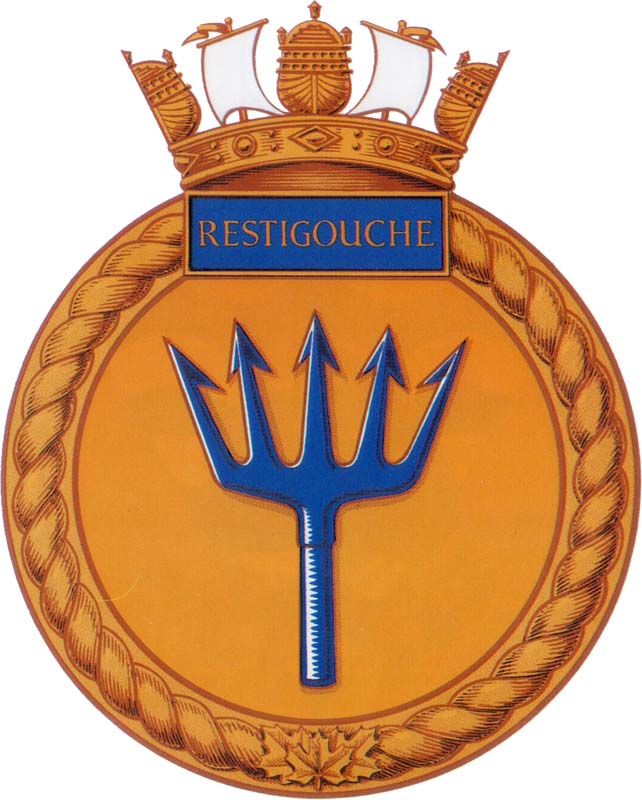HMCS RESTIGOUCHE Badge

Blazon
Or, the head of a five pronged fish-spear erect, azure.
(Glossary of Heraldic Terms)
Significance
The gold field is derived from the field in the arms of New Brunswick, through which province the Restigouche River flows. The five-pronged fish spear is in reference to the five tributaries of this river. One authority (Rev. PF Bourgeois) states that the meaning of Restigouche is 'river with five branches'. The name is thought to be derived from a Micmac word with this meaning. The fork is coloured blue in suggestion of water. There is another inference to be seen in this device as an instrument of the hunt for the destruction of fish below the surface of the waters, a subtle allusion to anti-submarine activities.
Remarks
Restigouche (I) was a River class destroyer. Originally HMS Comet, she was commissioned into the RCN in June 1938, and wore the pennant HOO until she was paid off in October 1945. Restigouche (II) is the lead ship in the Restigouche class of destroyer escorts. She was commissioned in June 1958. After undergoing the conversion to an Improved Restigouche class destroyer escort in 1970-1972, she was recommissioned into the fleet, wearing pennant 257 until being paid off in 1994.
Motto
Rester droit ("Steer a straight course")
Colours
Blue and gold
Battle Honours
North Sea 1940; Mediterranean 1943; Normandy 1944; Biscay 1944
References
Badges Of The Canadian Navy by Arbuckle, J. Graeme. Halifax: Nimbus Publishing, 1987.
CFP 267 - Badges of the Canadian Forces, Minister of Supply and Services Canada, 1977.
